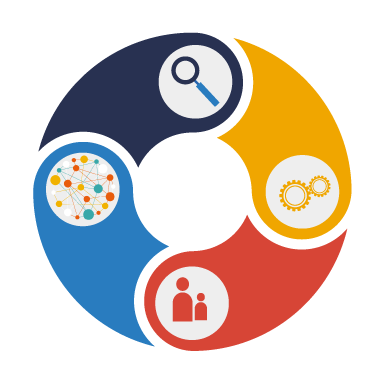Rare Disease Day Panel Sheds Light on Patient Challenges and Advocates for Patient-Centric Solutions

The Rare Disease Day panel hosted by the EU-funded RareBoost project at Izmir Biomedicine and Genome Center on February 29, 2024, served as an insightful forum to discuss the current research landscape and future opportunities for rare and undiagnosed diseases.
The panel included experts on rare diseases research and policy making, including Assoc. Prof. Mehmet Baysan, Dr. Nurdan Bulur, Dr. Gülçin Gümüş, Prof. İlhan Satman and Atty. Güneş Uyar. The panel shared multifaceted perspective on rare diseases, examining patient experiences, clinical challenges, research, industry practices, and international strategies for rare disease research and advocacy.
The panel underscored a series of challenges faced by rare disease patients, particularly in the diagnosis, treatment, and the financial aspects of their care. The critical role of non-governmental entities was emphasized, particularly in aiding patients with access to up-to-date information and support after their diagnosis.
On the clinical side, integration of further training on rare diseases within medical education was identified as a significant necessity, along with the lack of effective treatments for many rare diseases. Issues surrounding the scarcity of treatments and the accessibility of the few that exist were discussed, as well as the essential function of thorough medical record-keeping in impacting both academic clinical research and the industry. Increasing the number of specialized centers for rare disease diagnostics and treatment, and modernization of laws and regulations surrounding the clinical research on rare diseases was proposed as a means to enhance patient care and accelerate research and development.
The importance of leveraging data and genetic technologies to propel rare disease research forward was acknowledged, alongside the need for greater interdisciplinary collaboration to optimize the use of such technologies.
Lastly, the necessity for transparent communication about clinical research processes to patients was also highlighted. The panel identified a disconnect in communication between patients and researchers during clinical studies. Despite patient participation in clinical trials often being driven by the hope of receiving treatment or aiding research for others, there is a lack of clarity provided to them regarding the research process and timelines. Enhancing researcher awareness of patient perspectives and fostering effective communication between the two parties were seen as crucial steps. In this ecosystem, non-governmental organizations are envisioned as key stakeholders and communicators between patients and the scientific community.











